CRYOCARE®
Thermal Stress Defense, Barrier & Collagen Protection
Thermal Stress Defense, Barrier & Collagen Protection
INCI
Glycerin, Aqua, Hippophae rhamnoides fruit extract





CRYOCARE® is a biomimetic, plant-derived ingredient derived from Hippophae rhamnoides (Sea Buckthorn), a Himalayan plant that thrives in extreme cold thanks to its natural antifreeze strategies.
Through an innovative, sustainable extraction process—combining ultrasounds and tangential flow filtration—CRYOCARE® is enriched with bioactive compounds while eliminating impurities such as fibers and debris.
At the core of its efficacy is the chitinase protein, which adapts to cold stress by reinforcing the skin barrier and reducing moisture loss. Rich in flavonoids, omega-6 fatty acids (including gamma-linolenic acid), and vitamins C & E, it enhances hydration, repair, and skin renewal.
Beyond cold protection, CRYOCARE® shields the skin from photo-thermal stress by mitigating the harmful effects of infrared (IR) radiation. It reduces oxidative stress markers by up to 60%, preventing deep cellular damage and premature aging.
Ideal for cold, dry environments and urban settings, CRYOCARE® strengthens the skin’s natural defenses. Backed by research, it is biodegradable, non-irritating, and environmentally safe, aligning with sustainable and eco-conscious formulations.
COLD stress
compromises the barrier through vasoconstriction, dehydration and micro-damage. At the cellular level, ice crystal formation causes osmotic shock, membrane disruption and ultimately cell death.
Heat & infrared radiation
generate ROS, denature proteins and oxidize lipids, weakening the barrier and accelerating aging. They also upregulate stress markers and impair mitochondrial function, reducing cellular energy.
Thermal shock
destabilizes skin lipids and water balance, increasing TEWL and activating stress pathways that impair cellular structure.
CRYOCARE® counteracts these effects by supporting biomimetic defense pathways, helping skin remain balanced, resilient and protected from the thermal challenges of the exposome.
Cell viability has been assessed on Keratinocyte cell line exposed to hypothermic shock (two repeated exposures of 1 hour at -20°C) with or without CRYOCARE®.
0.15% CRYOCARE® significantly (p<0.05) increased the survival of keratinocytes exposed to thermal shock up to the quadruple.

C-: cells not treated or exposed to thermal shock
C+: cells exposed to thermal shock

C-: cells not treated or exposed to thermal shock
C+: cells exposed to thermal shock
Volunteers’ forearm has been treated with a base emulsion, with or without CRYOCARE®, and exposed to controlled cold and dry temperature and humidity conditions using the W&HS – weather & humidity simulator, a patented instrument.
Skin hydration has been evaluated after 1 hour: 5% CRYOCARE® determined a significant increase (***p<0,001) in skin hydration by 44,6% compared to the control area with an improvement greater (+50%) than the placebo product (*p<0,05).
This indicates the in-vivo thermal protective efficacy of CRYOCARE®.

CRYOCARE®, in human keratinocytes subjected to photo-thermal stress (environmental temperature above 42°C and a total exposure of 300 J/m2 energy) significantly (p<0.05) reduces the stress marker HSP72 levels in a dose-dependent manner demonstrating a protective efficacy towards damage agents as IR radiation.
In addition to lowering HSP72 levels, CRYOCARE® enhances skin resilience, supporting adaptation to environmental stress while preserving vitality and a youthful appearance.

A 3D full-thickness human skin model was used to reproduce real-life transitions — from freezing cold to heated environments, or from hot, humid conditions to air-conditioned, dry air. CRYOCARE® (1.25 and 2.5 %) was applied for 24 h before subjecting the models to a thermal shock (−20 °C for 1 h followed by +42 °C for 1 h).
1. Barrier Function
TEER is a recognized marker of barrier integrity: higher values reflect tighter junctions and reduced permeability.
Under cold-to-heat stress, untreated epithelia lost ~60 % TEER, showing severe barrier disruption. With CRYOCARE®, TEER was preserved in a dose-dependent manner, confirming its ability to maintain epidermal cohesion and limit water loss during thermal shocks.
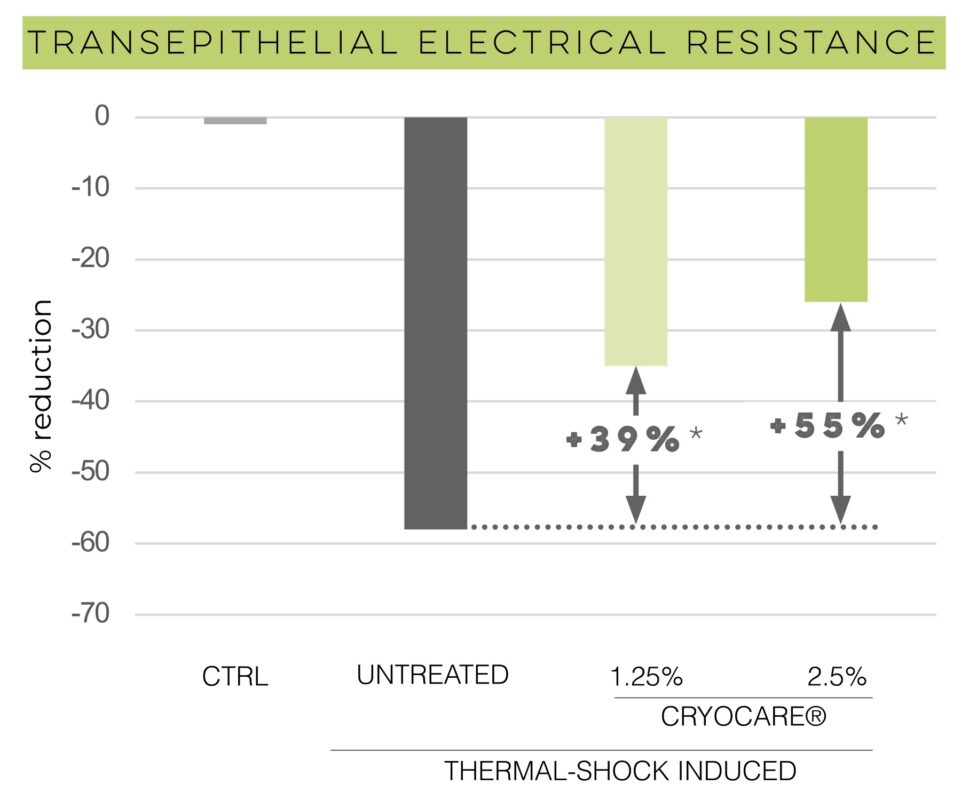
2. Histological Damage
Cold-to-heat stress causes severe structural alterations, including cell degeneration, necrosis and erosion — clear signs of barrier collapse.
In untreated samples these damages were extensive, while CRYOCARE® reduced degeneration in a clear dose-dependent manner, preserving skin morphology and preventing structural breakdown under extreme thermal transitions.
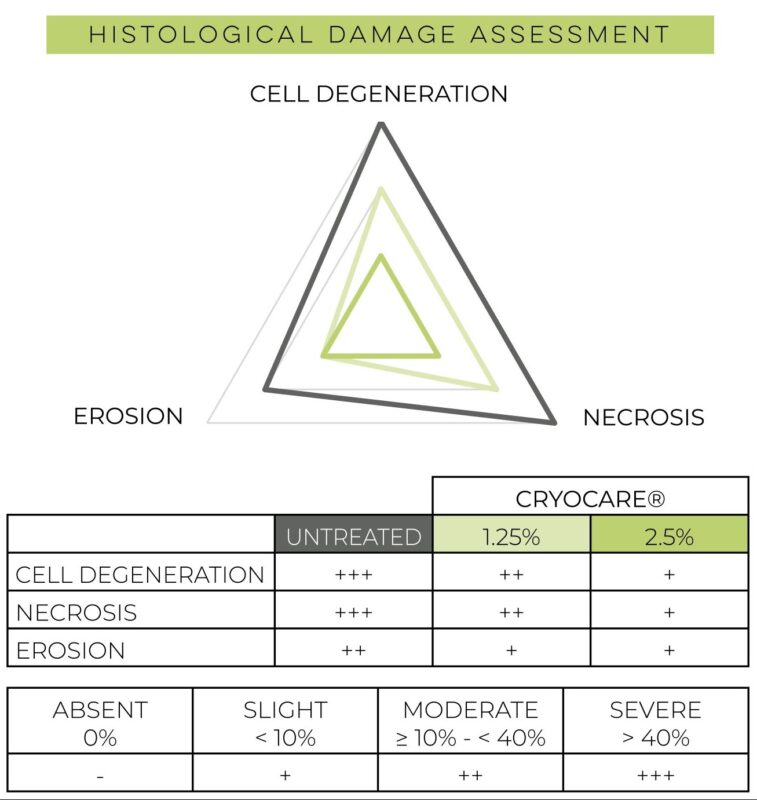
3. Histology
In control (no-stress) samples, the epidermis is compact and continuous, with well-preserved nuclei.
After cold-to-heat stress, untreated skin displayed marked damage: surface thinning of the stratum corneum, large vacuoles disrupting tissue structure, and loss of nuclei indicating necrosis.
With CRYOCARE®, the epidermis retained near-normal architecture: epidermal layers resembled control, vacuoles were reduced, and nuclei remained visible.
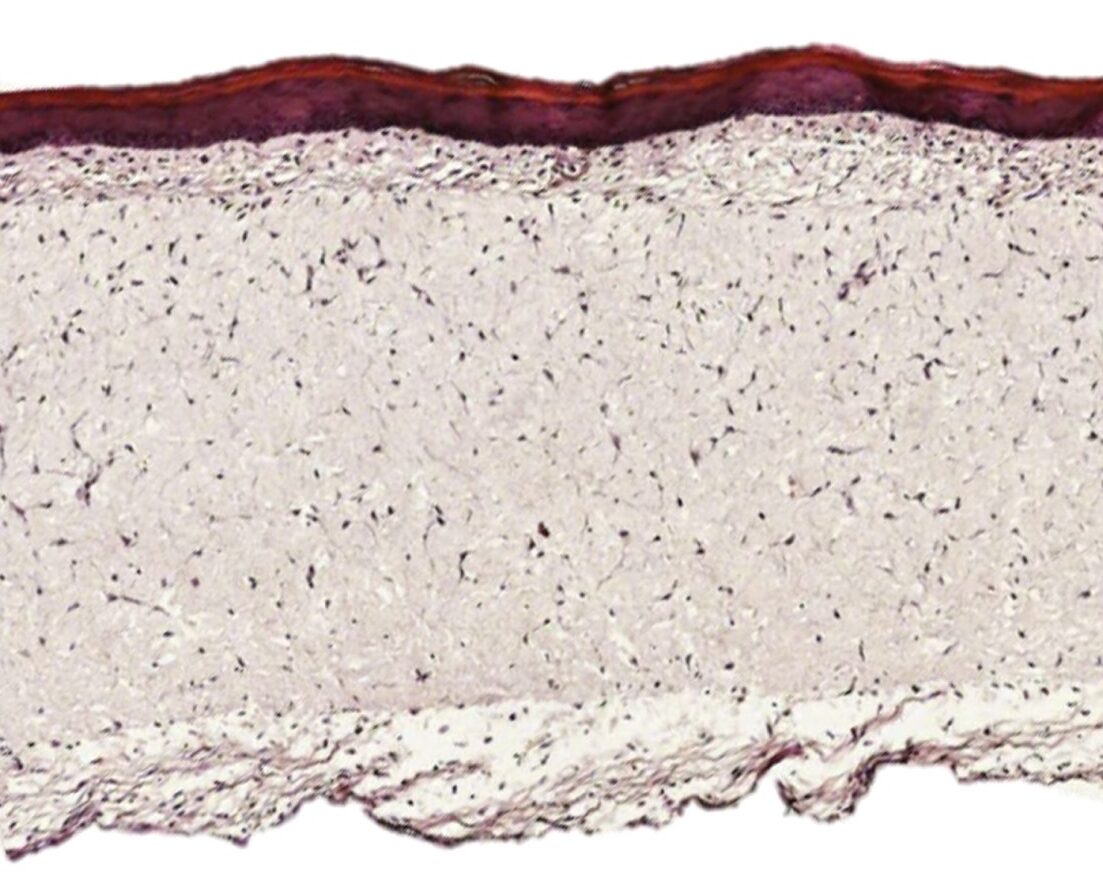
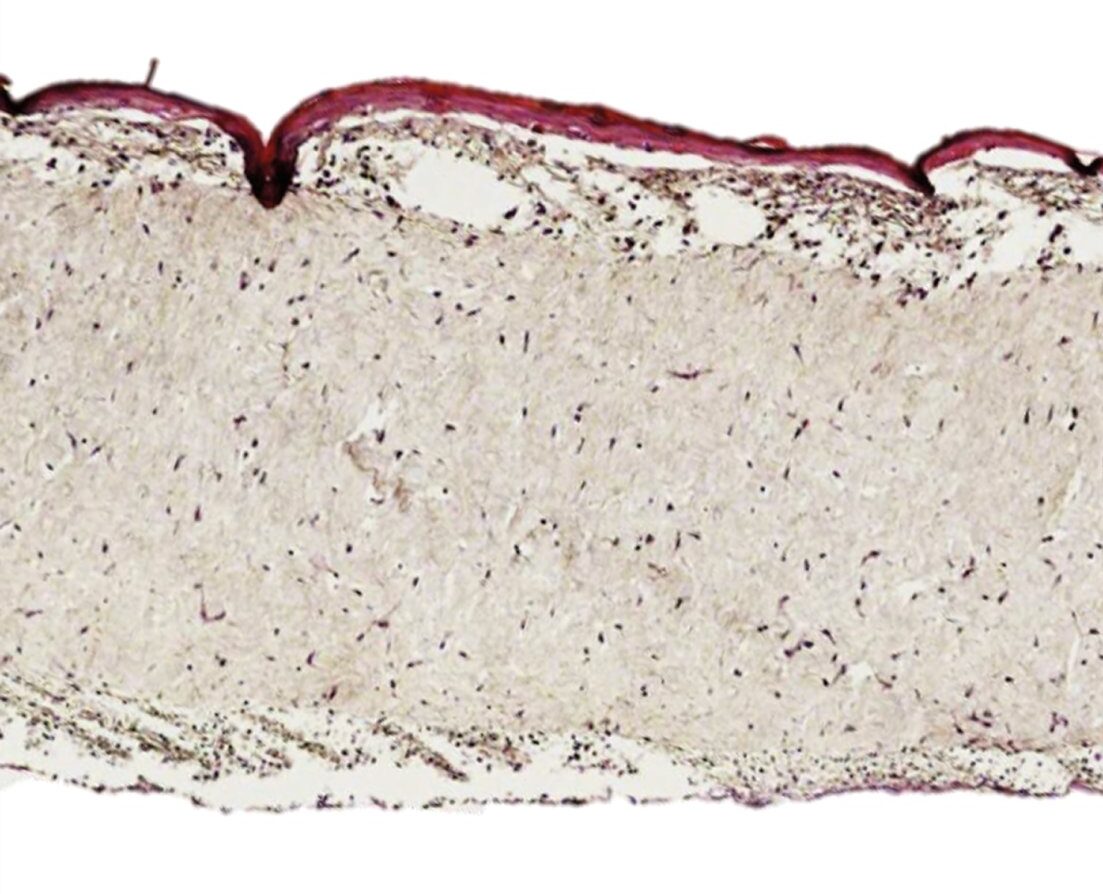
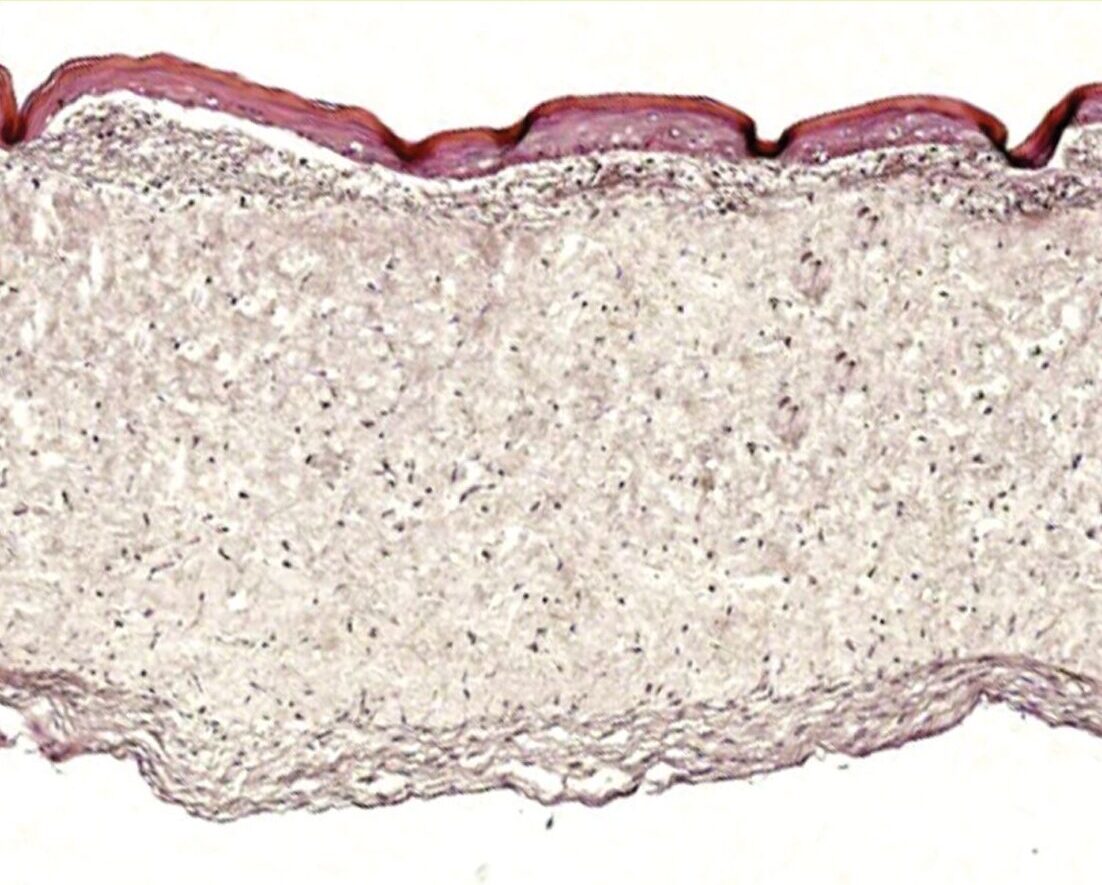
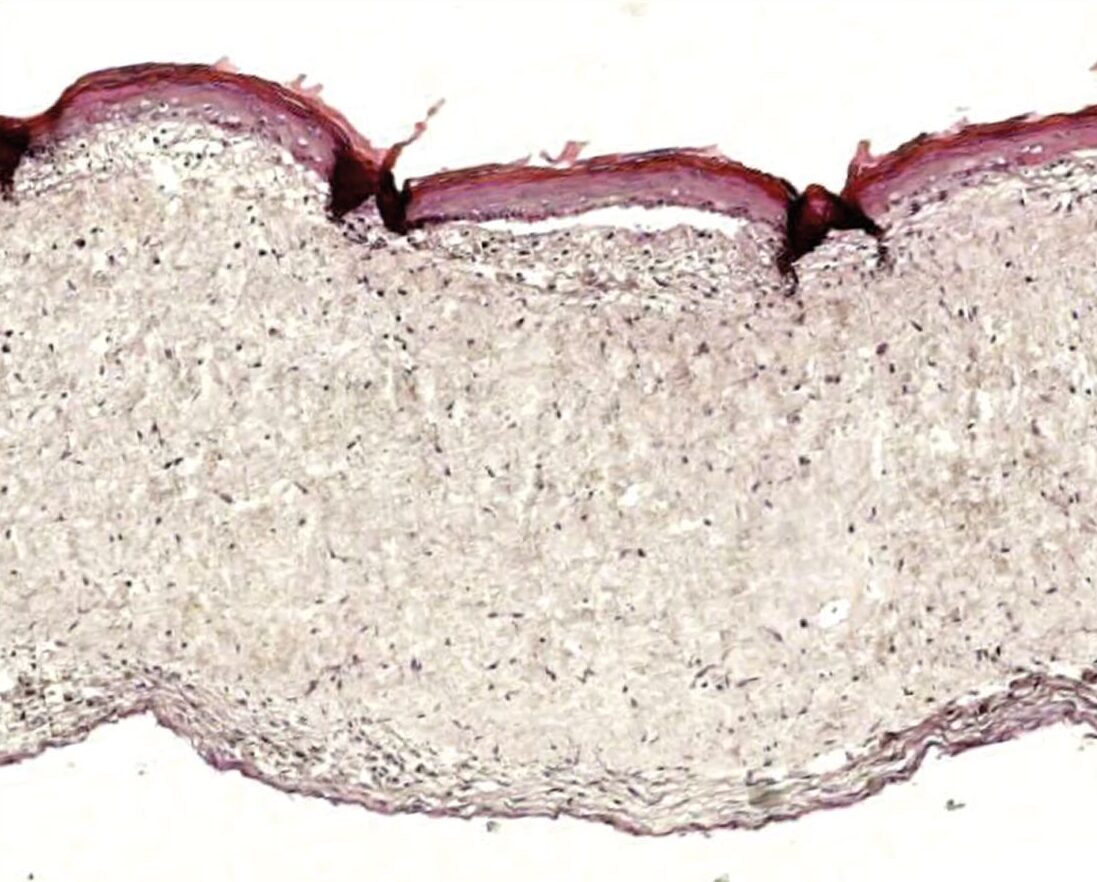
4. Collagen I
Type I collagen is the main structural protein of the dermis, essential for strength, elasticity and density. Under thermal stress, its degradation accelerates loss of firmness and visible aging.
Cold-to-heat shock induced a marked decrease in collagen I in untreated skin. With CRYOCARE®, collagen levels were preserved in a clear dose-dependent manner.
By protecting type I collagen, CRYOCARE® supports dermal structure and resilience, helping skin remain firm and healthy-looking under thermal stress.
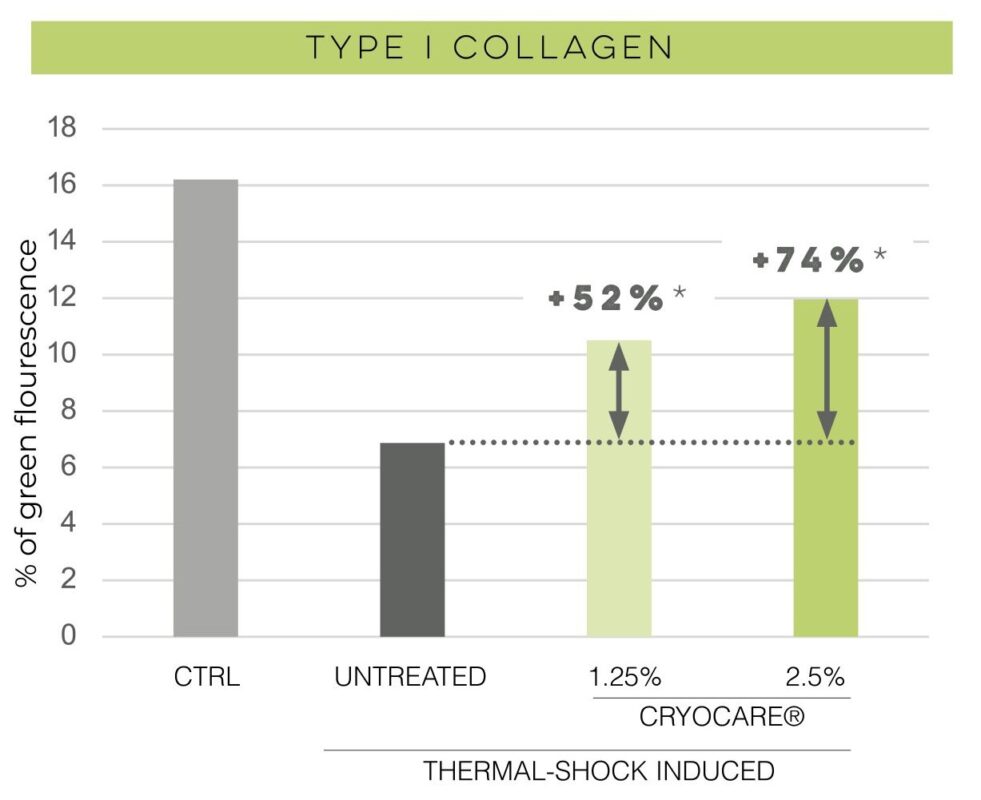
4. Collagen I
Type I collagen is the main structural protein of the dermis, essential for strength, elasticity and density. Under thermal stress, its degradation accelerates loss of firmness and visible aging.
Cold-to-heat shock induced a marked decrease in collagen I in untreated skin. With CRYOCARE®, collagen levels were preserved in a clear dose-dependent manner.
By protecting type I collagen, CRYOCARE® supports dermal structure and resilience, helping skin remain firm and healthy-looking under thermal stress.
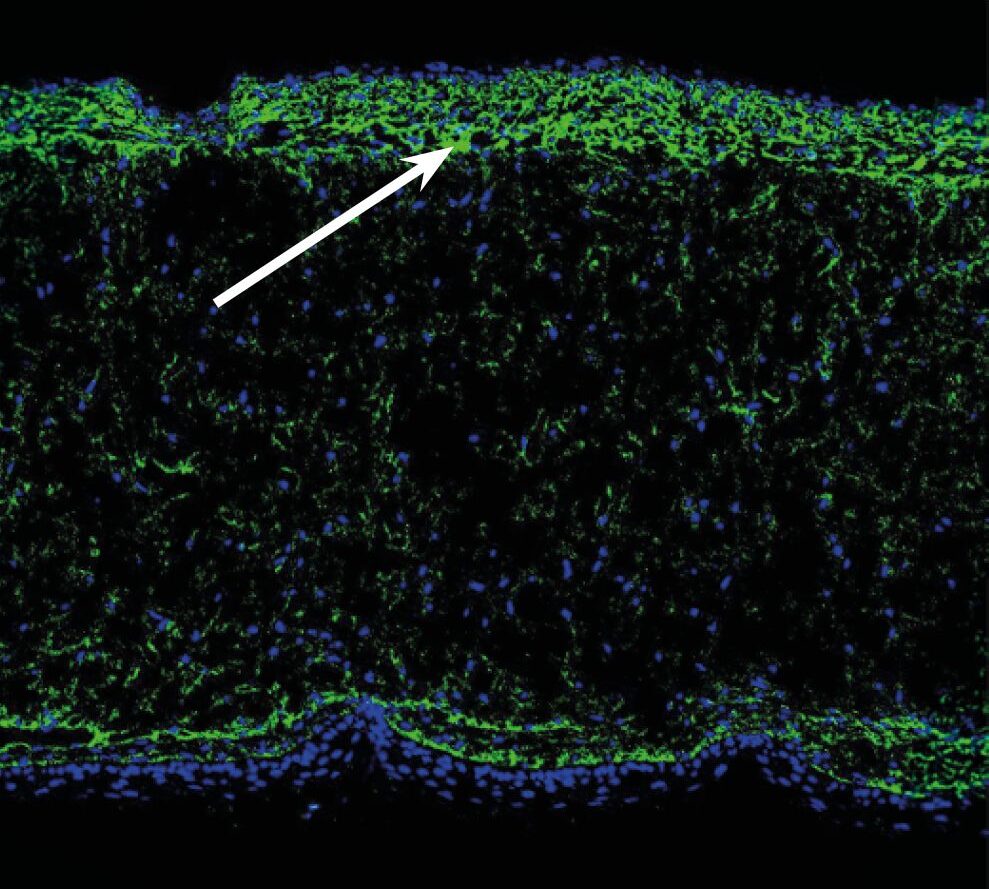
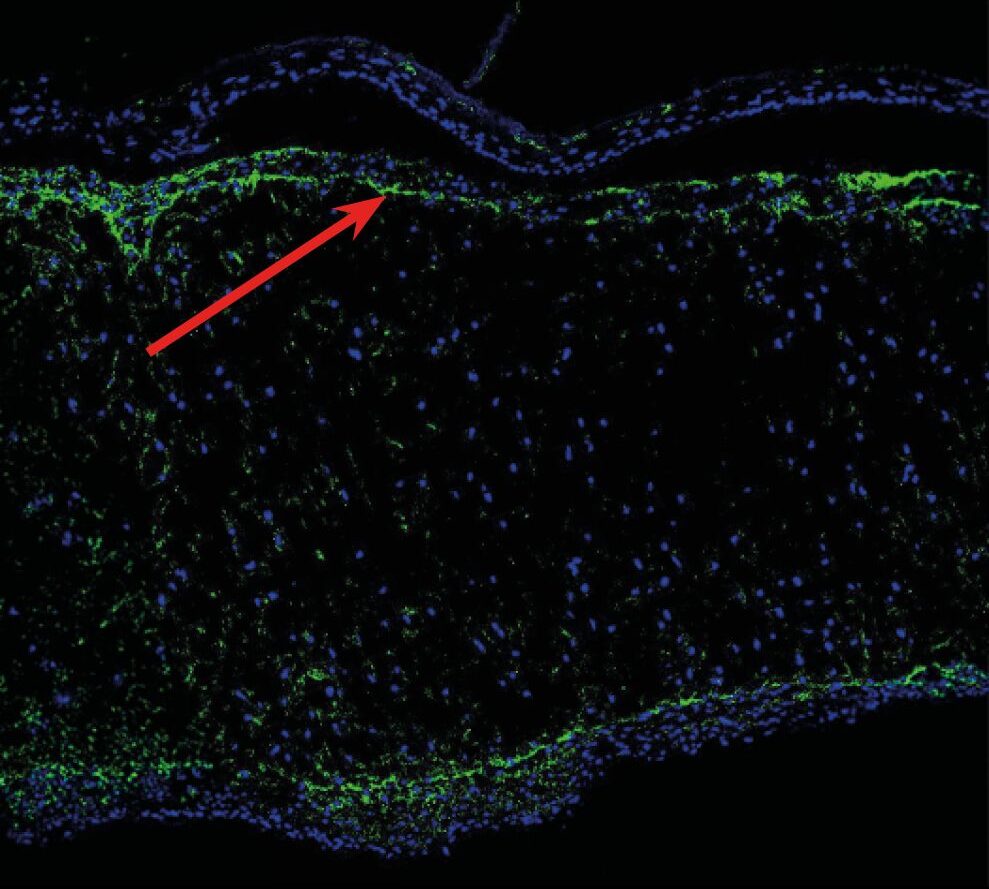
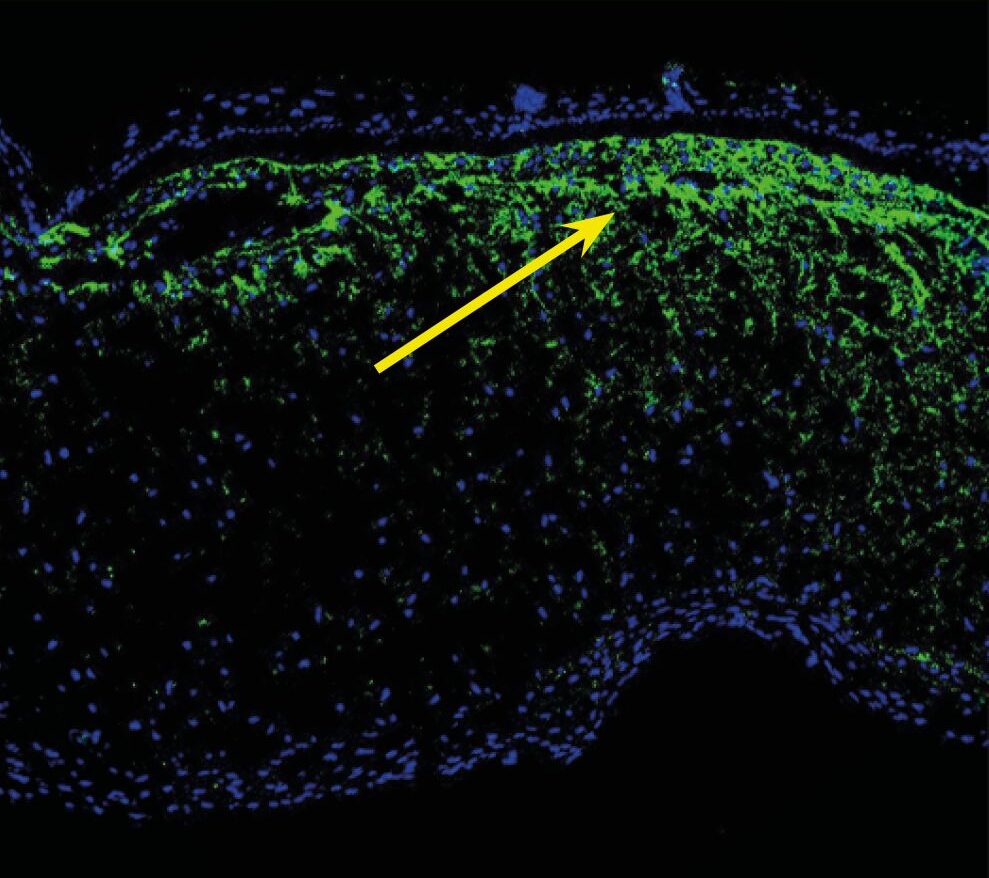
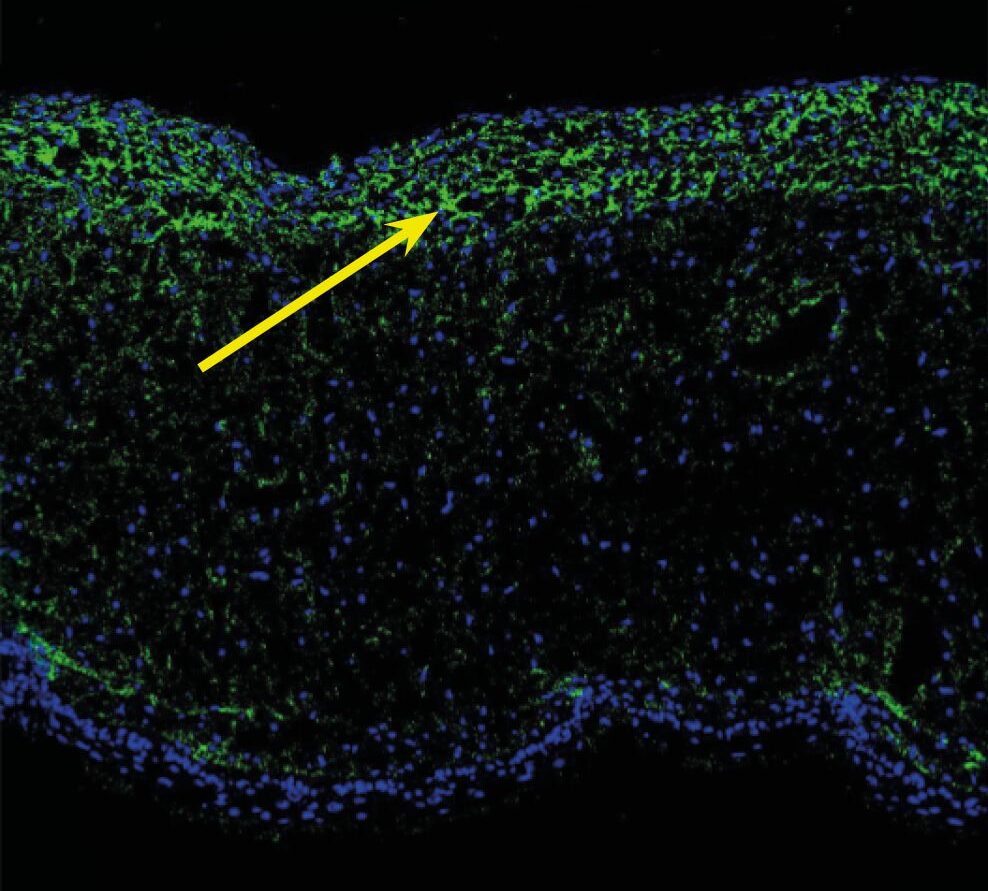
2% – 5%
CRYOCARE® is ideal for emulsions and transparent water-based systems, bringing climate defense benefits to a wide range of formulations. It is particularly suited for protective and thermal care, urban skincare against exposome stress, sun protection, as well as well-aging and repairing treatments for stressed or sensitive skin.
| APPEARANCE | CLEAR LIQUID |
| COLOUR | LIGHT AMBER |
| ODOUR | CHARACTERISTIC |
| DRY RESIDUE (105°C) | > 90 % |
| SPECIFIC GRAVITY (25°C) | 1.2 – 1.3 g/ml |
| PH (5% WATER SOLUTION AT 25°C) | 4 – 6 |